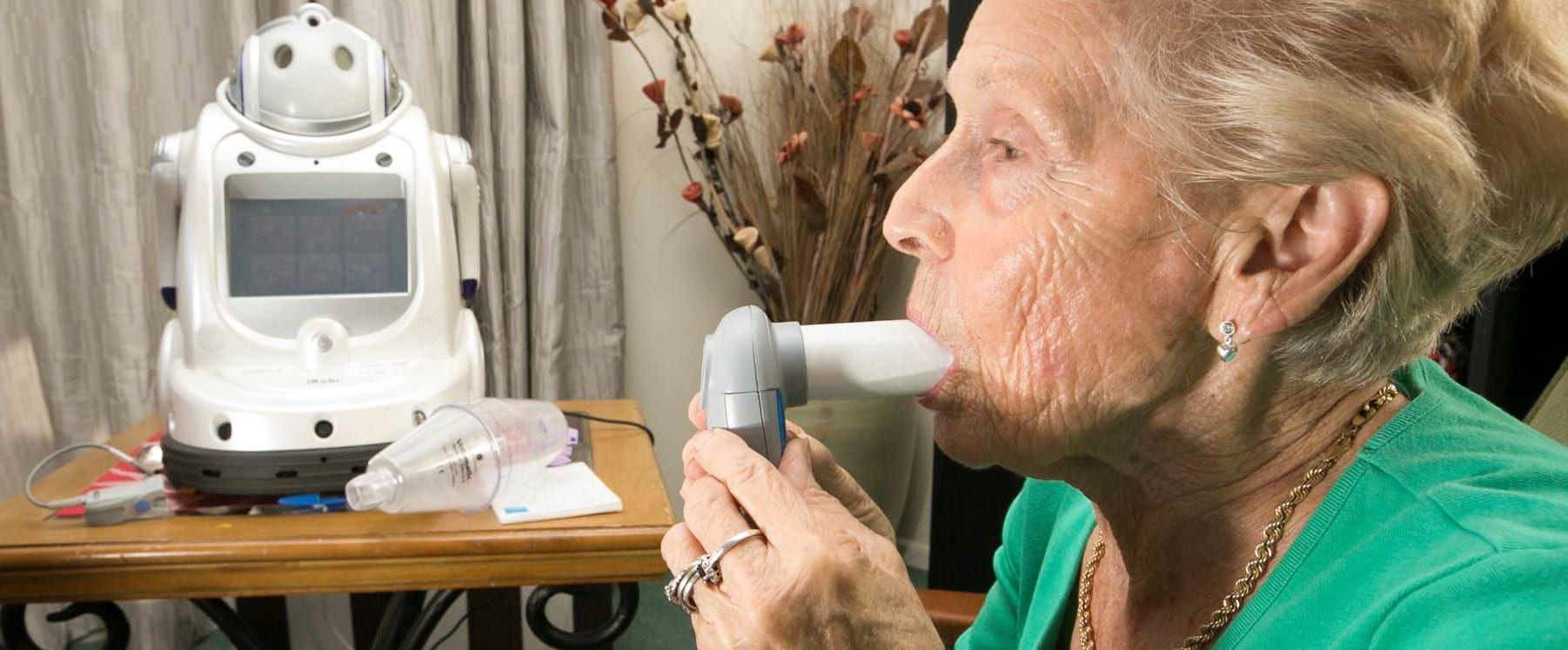
PEOPLE’S INTERACTIONS WITH ROBOTS
Can robots improve health outcomes and quality of life for patients living at home with Chronic Obstructive Pulmonary Disease?
ROBOTS IN HEALTHCARE
Are robot technologies clinically effective and cost effective in the treatment of COPD patients?
Funded by the Health Research Council of New Zealand Partnership programme in 2015 for 18 months.
Background: Chronic Obstructive Pulmonary Disease (COPD) is a condition that affects the lungs and impairs the ability to breathe. While medication and rehabilitation can help, adherence to these treatments is low. Technologies that can improve adherence and provide monitoring may reduce hospitalisations, improve quality of life, and reduce healthcare costs.
Aims: to investigate whether or not robots at home can improve health outcomes in COPD patients.
The robot: iRobi is programmed to provide medication management, spirometer readings and blood oxygen monitoring, monitoring of activity, and symptoms, and be linked to Smart inhaler devices. The data from the robot and smart inhalers is monitored and if the early signs of an exacerbation are detected, appropriate advice is provided to patients.
Method: A randomised controlled trial was conducted with the University of Auckland and Counties Manukau DHB.
Results: This research will deliver information about the clinical- and cost-effectiveness of these technologies to inform COPD care.
Current status: The study is complete and results are being prepared for publication.
Media: Click here to link to TV3 news clip and NewsHub article on study
